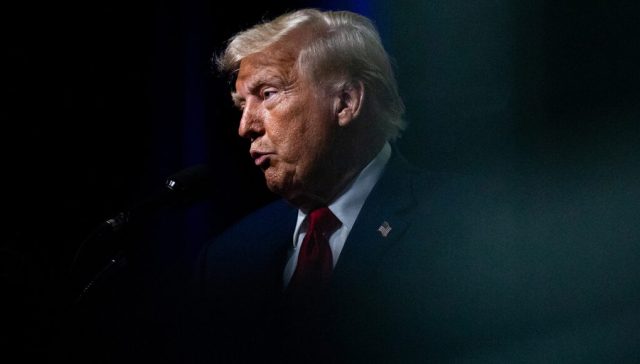Was John Locke a Proto-Libertarian?
English philosopher John Locke is widely regarded as the father of liberalism. Libertarianism is a product of this liberal tradition, much to the embarrassment of today’s American liberal progressives who successfully coopted the term in the early twentieth century, irrevocably associating it with the Left.
However, if Locke was the progenitor of liberalism, and libertarianism is a branch in its tree, then the question arises: was Locke a proto-libertarian? (“Proto-libertarian” is the term used by Zwolinksi and Tomasi in The Individualists to describe foundational thinkers in the libertarian tradition who predate the emergence of the term).
Whether modern “liberal” states like Australia reflect the Lockean hope or the anarcho-capitalist fear regarding the security of property is well beyond the scope of this short essay.
The fact that those advocating small government, the sanctity of private property, the virtues of free market capitalism and genuine individual freedom (of the kind that allows people to do and say things that offend) can and do claim to be the true heirs of liberalism scandalises today’s self-described “liberals” who believe in redistributing wealth, constraining the evils of capitalism, enacting social justice and protecting citizens from “hate speech.” Libertarians, whether they recognise it or not, are party to a conflict over the legacy of Locke.
Locke, like all political philosophers of his day, began with the human being’s “state of nature,” which is to say assumptions about the fundamental nature of human existence before the emergence of society, government and the state—the human animal in its natural habitat, if you will. Locke believed that the human being’s state of nature was absolute freedom. “Man,” he maintained in the Second Treatise on Government (1690), was “absolute Lord of his own Person and Possession, equal to the greatest, and subject to no Body.” So far, so libertarian. The question, given this state of nature, was on what legitimate grounds any human being could willingly cede this absolute freedom to form society, with its structures of power, authority, law and government? If man is free, Locke asked, how could he “subject himself to the Dominion and Controul [sic] of any other Power?”
if Locke was the progenitor of liberalism, and libertarianism is a branch in its tree, then the question arises: was Locke a proto-libertarian?
Locke’s answer rests in property. In the state of nature, he observed, the human being was vulnerable to the “invasion of others.” As such, man’s “enjoyment of the property he has in this state [of nature] is very unsafe, very unsecure.” It is this insecurity, according to Locke, that led humans to form societies for the “mutual Preservation of their Lives, Liberties and Estates.” Human beings, though absolutely free in the pre-societal state of nature, nonetheless surrender some of their freedom in order to secure their property. It is important to note that in this Lockean perspective property precedes the formation of society and the state, which is to say that it is a pre-political natural right. The Lockean state, therefore, exists specifically to safeguard the individual’s natural right to property.
At this point we run into controversy regarding the relationship of Locke’s justification for the state with libertarianism. Minarchists, of the classical liberal variety, are inclined to agree with Locke that the state, along with its coercive power, can be justified on the grounds of the protection of property, including the most valuable property, human life. On the other hand, the anarcho-capitalism finds itself in total opposition to this Lockean justification of the state. The rationale for forming a state in the Lockean schema is the threat posed to property by other human beings. In the anarcho-capitalist perspective, in contrast, it is in fact the state that poses the greatest threat to property rights, through its extractive and appropriative tendencies. Whether modern “liberal” states like Australia reflect the Lockean hope or the anarcho-capitalist fear regarding the security of property is well beyond the scope of this short essay. I merely note that Locke could scarcely have predicted, let alone conceived, that the European states of his day, with their weak administrative capacity, could evolve into the gargantuan authoritarian behemoths that we know today, with their ideological and technological capacity to regulate and monitor every domain of human life.
In any event, we will never know whether Locke would have embraced the label “libertarian” were he alive today. But his recognition of the essential pre-political human rights to freedom and property, along with his attempts to justify the existence of the state solely on the basis of securing its citizens’ property, are enough to warrant his description as a proto-libertarian, i.e., someone who tilled the soil out of which libertarianism was to grow more than three centuries later. What’s more, it seems unlikely that Locke would recognise what passes for “liberalism” today in America, and increasingly in Australia, as sharing and articulating the ethos of his political philosophy. Libertarianism may be a neologism born of the need to disassociate classical liberalism from the leftward drift of the term “liberalism” in the twentieth century, but its ideas have a long pre-history tracing back through English, French and American liberalism all the way to its source, more than three centuries ago, in John Locke. This should not be forgotten.

Jonathan Cole is a libertarian political philosopher and co-host of The Political Animals podcast: “Two political philosophers, one a right-wing radical, the other a left-wing heretic, come together to discuss the social, political and cultural issues of our day.”










